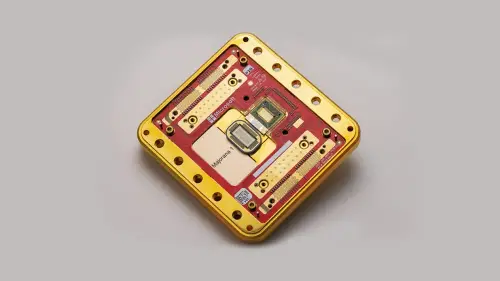Microsoft has introduced a new quantum computing chip, Majorana 1, claiming it brings practical quantum computers "years, not decades" closer. The announcement places Microsoft alongside Google and IBM in forecasting a faster arrival of quantum technology.

Quantum computers promise to perform calculations that would take classical computers millions of years, potentially revolutionising fields such as medicine and chemistry. However, they also pose risks to cybersecurity, as they could break current encryption methods.
A major challenge in quantum computing is the instability of qubits, the fundamental units of quantum information. Microsoft claims its Majorana 1 chip is less prone to errors than competing designs. The company cited a forthcoming scientific paper in the journal *Nature* as evidence of its progress.
The chip is based on the Majorana fermion, a subatomic particle theorised in the 1930s. Microsoft has spent nearly two decades developing the technology, using indium arsenide and aluminium to create a superconducting nanowire that can observe and control these particles.
Unlike rival chips from Google and IBM, Majorana 1 has fewer qubits. However, Microsoft believes its lower error rates mean fewer qubits are needed to build a functional quantum computer. The company did not provide a timeline for scaling up the chip but reiterated that practical quantum computing is approaching faster than previously expected.
Jason Zander, Microsoft’s executive vice president overseeing strategic projects, described Majorana 1 as a "high risk, high reward" endeavour. He highlighted the complexity of the project, stating that Microsoft had to develop new methods to construct the chip "atom by atom, layer by layer."
The chip was fabricated in Microsoft’s labs in Washington state and Denmark.
Philip Kim, a Harvard University physics professor not involved in the research, called the development "exciting" and said it positioned Microsoft at the forefront of quantum computing. He noted that while the chip has not yet been demonstrated at scale, its hybrid approach using traditional semiconductors and superconductors appears promising.
Microsoft unveiled the Majorana 1 quantum chip, claiming practical quantum computing is "years, not decades" away
The chip is designed to reduce errors, a major challenge in quantum computing
It is based on the Majorana fermion, a particle theorised in the 1930s